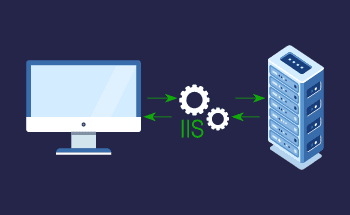How to Choose the Best Payment Solution for Your Business?
07:24, 06.04.2023
Choosing the right payment solution is crucial for any business because it can affect the customer experience, the ability to accept payments from all customers, and the security of customer data. A good payment solution should be easy to use, reliable, and secure. It should also provide the business with options for payment processing, data security, and customer support. Having the right payment solution in place can help a business attract more customers, increase revenue, and reduce the risk of fraud.
With so many companies going online and selling their products and services on the Internet, a reliable payment solution is a must. Today we’ll consider the main features of a good payment solution and provide some tips on selecting the best partner for your business.
What is a payment gateway, and why do you need one?
A payment gateway is a service that allows merchants to accept payments online. It acts as an intermediary between a merchant’s website and the customer’s payment method, such as a credit card. Payment gateways securely process the transaction and transfer funds to the merchant’s bank account.
A payment gateway is a vital component of any online business. It provides a secure and reliable way to process online payments, from credit and debit cards to digital wallet payments. Without a payment gateway, customers would be unable to make purchases from an online store. Payment gateways also provide essential security for online transactions, protecting customers and businesses from fraud and other cyber crimes.
Basic tips on how to choose a payment gateway
Below you will find some basic tips on choosing a reliable payment gateway for your business. Start with them if you’re looking for a new partner.
Determine your payment processing needs
The first step in choosing a payment gateway is to determine your payment processing needs. Consider what type of payments you need to accept and what currencies you will be accepting.
Look at the fees
Payment gateways all have different fee structures. Compare the fees to determine which one is the most cost-effective for your business.
Consider security
Security is an important factor to consider when choosing a payment gateway. Make sure the payment gateway you choose is secure and up-to-date with the latest security protocols.
Look for integration and customization options
Most payment gateways offer integration and customization options. Look for a gateway that can easily integrate with your existing website and allows you to customize the checkout process.
Read reviews
Before making a decision, read reviews from other merchants who have used the payment gateway. This can help you get an idea of how the payment gateway works and if it’s the right choice for your business.
Comparison of major payment gateways
With the growth of online businesses, the choice of payment gateways has grown exponentially. Companies have the option of choosing from a variety of payment gateways depending on their requirements and budget. The payment gateways are of different types and have different features to offer.
Some of the most popular payment gateways include PayPal and Google Checkout. However, choosing a giant payment service provider does not always make sense. Often such companies put forward too complex requirements for small companies, significantly delaying the process of opening an account and blocking merchant accounts without warning. Therefore, below, we compare several of the best payment gateways for small and medium businesses.
Stripe
Stripe is an online payment processing platform that enables businesses to accept payments and manage their financial operations. It provides an easy-to-use interface, allowing users to process payments quickly, securely, and cost-effectively. Stripe provides a range of features, such as fraud prevention, subscription billing, and integration with various third-party services. Stripe is used by businesses of all sizes, from startups to Fortune 500 companies.
Pros
- Transparent pricing.
- No setup or cancellation fees.
- Many payment methods and currencies.
- Nice design.
Cons
- You’ll need a developer to implement and customize most features.
- Limited functionality for physical stores and venues.
PayAdmit
PayAdmit is a one-stop payment solution that allows businesses to accept payments from customers quickly and easily. It supports a variety of payment methods, including credit cards, debit cards, Google Pay, cryptocurrencies, and more. PayAdmit is PCI DSS compliant and uses industry-standard data encryption and tokenization to protect customers’ payment information so businesses can rest assured that their customers’ data is safe and secure. With PayAdmit, businesses can process payments quickly and securely, making it an ideal solution for online stores, online services, and more.
Pros
- Understandable and up-to-date API documentation for the connection.
- All global and local currencies are supported.
- Almost instant approval.
- Many customization options for the checkout process.
- Payment links, cashier services, and many other options are available.
- Own anti-fraud system.
- Intelligent routing and cascading.
Cons
- No 24/7 support.
- Few APM solutions.
Adyen
Adyen is an online payment service provider that enables businesses to accept payments from customers all over the world. Adyen is a full-stack platform that provides a comprehensive set of services, from merchant onboarding to payment processing, fraud management, and more. Adyen is PCI-DSS compliant and supports all major credit and debit cards, digital wallets, and local payment methods.
Pros
- No monthly or closure fees.
- Omnichannel global payments.
- 24/7 customer support.
Cons
- Complicated pricing terms.
- Monthly minimums vary and exclude some small businesses.
Helcim
Helcim is a Canadian-based payment gateway that provides businesses with a secure platform for accepting payments. Helcim offers businesses a selection of payment solutions with features like point-of-sale (POS) systems, eCommerce solutions, virtual terminals, and mobile payment options.
Pros
- All payment elements are easy to select and set.
- No monthly fee.
- The more sales you get, the lower Helcim’s margin on each transaction.
Cons
- Interchange-plus pricing is harder to predict.
- The pricing won’t be beneficial for companies that don’t have at least $25,000 in monthly card sales.
There are also many other payment gateways you can consider; however, we have listed the main ones. Their choice depends on what goals you are pursuing and what features are especially important to you. One of the best payment gateways is PayAdmit, with its wide range of features and easy customization of all elements. It is definitely one of the best choices for SMEs who want to sell products and services online and grow.
Summary
Choosing the right payment gateway for your business can be a daunting task. With numerous options available, it is important to do your research and find the right fit for your company. Consider the features and fees associated with each payment gateway, such as transaction fees, customer service, security, compatibility, and customer support. Additionally, make sure to read reviews and talk to other business owners who have used the payment gateway to ensure that it is a good fit for your business. Ultimately, selecting the right payment gateway will help ensure that your customers have a secure and seamless payment experience.


